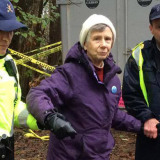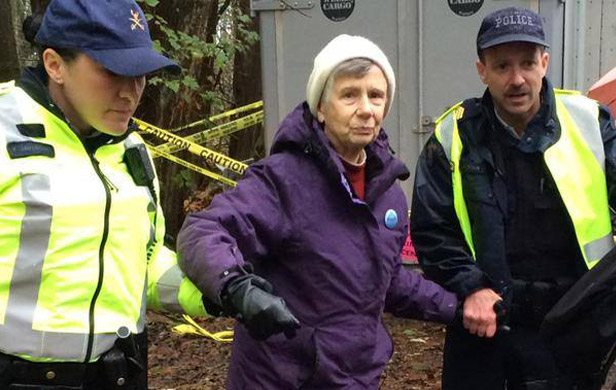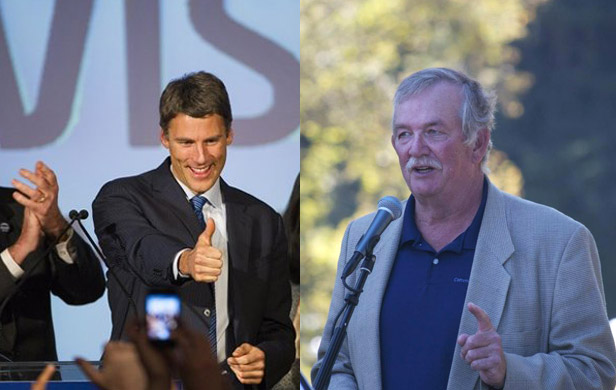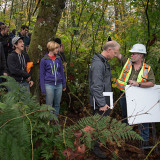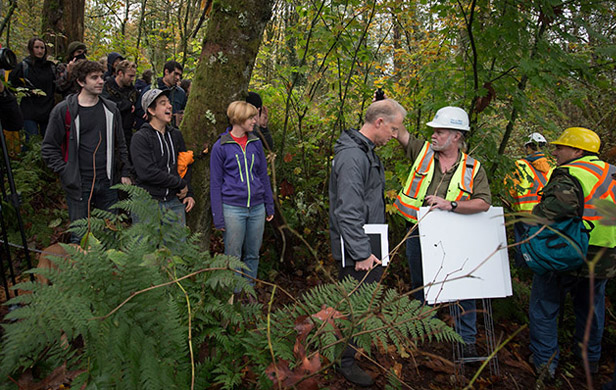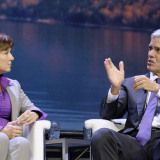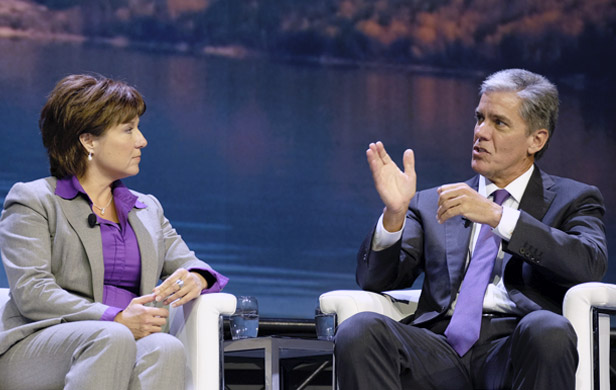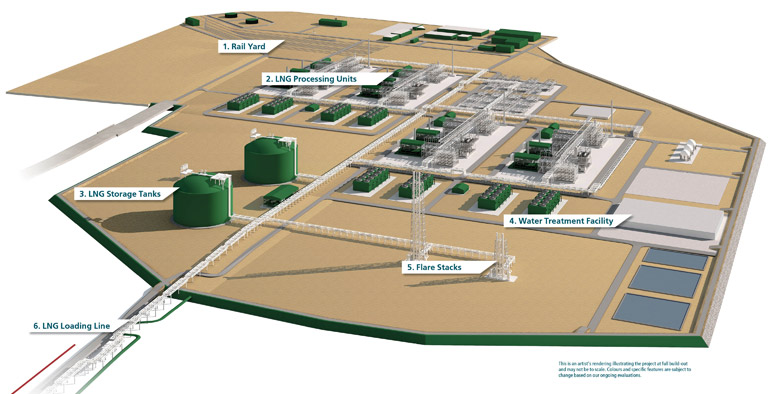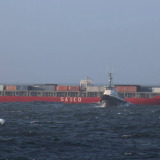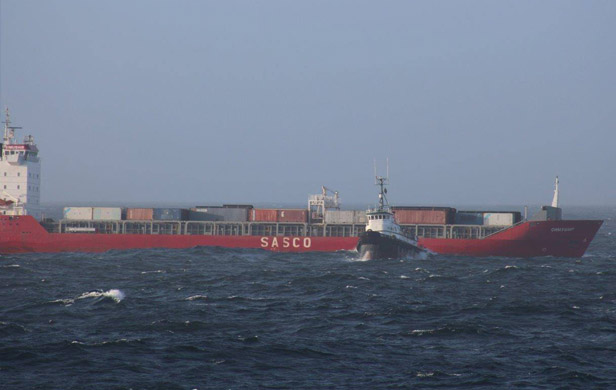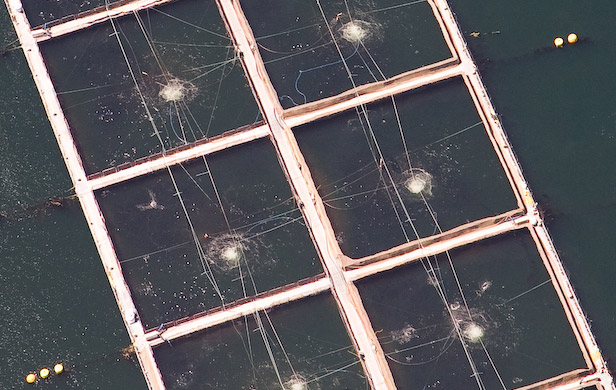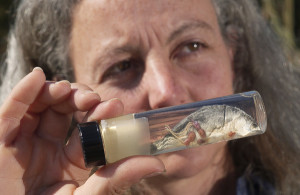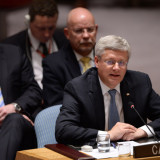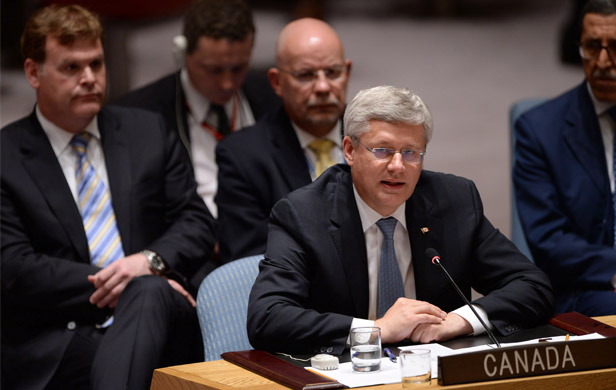
Premier Christy Clark has taken it upon herself to criticize the parents of two 11-year-olds who protested the Kinder Morgan action in Burnaby and were only not arrested because the police chose to refrain from doing so. The premier is concerned that the these children have been encouraged, by their parents, to “break the law”.
This requires, I submit, a bit of examination.
I trust that premier Clark has no objection to parents instilling in their children the principles by which they govern themselves. I suspect that her son Hamish is being brought up to be a free-enterpriser, as defined by his mother and father. (Oddly enough, after the last legislative session, I assume that NDP opposition leader John Horgan agrees with premier Clark, given his obsequious support of her and her government on the LNG issue).
The King CAN do wrong
The basic issue, as I read the Premier’s remarks, is that these two children were taught to flout the law. This is the argument that those in charge of things have always made. It’s really part of the maxim that “the King can do no wrong”.
The problem is, the king can do a hell of a lot wrong. When he takes away the rights of citizens by passing an oppressive law, for which kings and their ministers are justifiably famous, he’s done wrong. Does that mean that he must nevertheless be obeyed at all cost because his laws by definition are “legal”?
Civil disobedience has been part of the democratic process since the Magna Carta and before. One of the principles is that if you stand against a law, you must pay the penalty. This the kids were prepared to do.
In the present case, the two young girls evidently decided, quite on their own, that Kinder Morgan was interfering with their park and with their neighbourhood and wanted to protest. Presumably if they’d decided they wanted to carry signs supporting Kinder Morgan, the premier would’ve had no objection.
The real issue, then, is that these girls broke the law and whether or not it was a good law or a bad law, is irrelevant. The law is the law, period.
What if enforcing the law is an abuse of process? Let me make the case that it is.
Abuse of Process
The matter is essentially a civil one, not a criminal one. The protesters interfered with Kinder Morgan’s right to conduct survey work for its proposed project and, as a result Kinder Morgan, sued the protesters. Instead of the case proceeding to civil court, with a judgment duly rendered on the merits, Kinder Morgan turned it into a criminal matter by obtaining an injunction from the Supreme Court preventing the protesters from protesting on public property. Now, all of a sudden, the protesters were faced with jail if they don’t do what they’re told.
What is it, you might ask, that the protesters were deprived of by the matter being turned from civil to criminal?
The answer is everything. In a civil court, the protesters had a number of defences open to them not the least of which was the breach of Burnaby bylaws protecting their property, parks, roads and neighbourhoods. Remember that the National Energy Board and the Supreme Court of British Columbia are not the last word on these matters – many of them beg to go to the Court of Appeal and higher.
Does Kinder Morgan have the right, even under government permits, to destroy municipal property? Does it have the right to interfere with citizens using their streets and their parks? Does it have the right to permanently sully the neighbourhood with any pipeline, let alone one that Burnaby residents know from experience is dangerous? What about the rights of people to enjoy their environment?
The citizens of Burnaby were prevented from raising these and other questions by the matter suddenly, at Kinder Morgan’s request, becoming criminal where the only issue is the protesters conduct.
Injunction disfunction
No process causes quite as much discomfort amongst the judges than this one. A number have publicly expressed their concern, including the late and highly respected Josiah Wood of the British Columbia Court of Appeal, who was scathing in his condemnation of this practice.
I’d be the last to suggest that parents should encourage children to break laws that we all know are just and necessary for the survival of a democratic and, for that matter, a safe society.
On the other hand, it seems to me to be an act of commendable citizenship to teach children that there are sacred democratic principles that must be set above laws made for the convenience of the “establishment”.
Surely it’s appropriate that children be taught how we have struggled against these kind of laws going back to the Magna Carta. Surely they should learn about the expulsion of the Tolpuddle Martyrs for fighting for labourer’s rights, the ongoing struggle for free speech, and the struggle against tyranny by the Fathers of the American Revolution.
My library is full of biographies of people like Thomas Paine, Thomas Jefferson, and John Wilkes. I have a substantial mini-library on the American Revolution and those who inspired and fought it. Does this make my house unsafe for my younger grandchildren? Would Ms. Clark have me dealt with severely for telling my grandkids that the people who disobeyed the oppressive laws of the day were heroes? That because of them and other brave men and women we have the rights we now possess?
What would John Wilkes say?
One biography I would urge upon the premier is that of John Wilkes. He was a rebel in 18th century London who amongst other things, went to jail for criticizing a speech by George III. He supported free speech when it was not fashionable to do so. In Parliament, he supported the Americans’ right to independence.
Wilkes was exiled, returned and thrown in jail again. Voters in the city of London rioted in his support as he was expelled from Parliament for sedition. He wound up the Lord Mayor of London, in spite of his lifelong war against the “establishment” of the day.
What position would Ms Clark have taken had she lived in those times? Would she have supported George III, his supine Prime Ministers and the laws they passed to suit themselves and the “establishment” they represented?
Or would she have said to Hamish, “this man Wilkes is a hero and is trying to establish and encourage the liberties of people including the right of free speech?”
The point is that premier Clark is being facile. She ignores the fact that the parents of these two girls are obviously trying to teach them the principles of free speech and freedom from oppression by bad laws made for people who hide behind them.
This was an obvious political maneuver to appear to be on the side of “Law and Order” in order to assure her supporters that she is unyielding in her fight for special rights and privileges, all nice and legal like, for the “establishment” no matter what.


